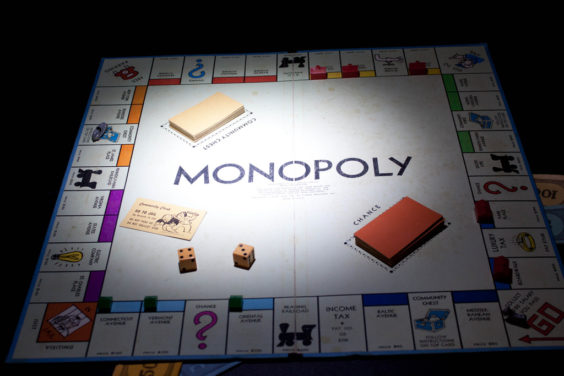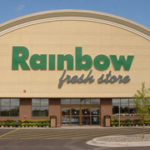
Have you ever wondered if anyone actually wins the grand prizes in sweepstakes like the one a Milwaukee-based grocery chain recently ran? Well, here’s your answer: No.
Roundy’s Supermarkets, which operates Pick n’ Save, Copps, Rainbow Foods and other grocery chains, recently wrapped up its second annual Monopoly “Collect & Win Game”, similar to the one that McDonald’s is currently running. But customers who played are wondering where all the big winners are. The $250,000 “dream home”? Dream on – nobody won it. The new car, the $50,000 cash, the $30,000 kitchen makeover? Nope. According to the official list of winners, one person won a motorcycle, one scored a $25,000 check and one got a free vacation, and the value of the prizes awarded goes down from there. Now some disgruntled players are wondering why the game that trumpeted $4.5 million in prizes ended up giving away only a third of that amount – the vast majority in the form of store coupons and gift cards.
Turns out the odds of winning that dream home were a nightmare: 1 in 575 billion. That’s about the same odds as getting hit by half a million individual bolts of lightning. You’re 50,000 times more likely to become president, and 5,000 times more likely to get crushed to death by a vending machine. Oh, and you’d have better odds at winning the top prize in the Mega Millions lottery – 3,000 times (and if you did, who would need a measly $250,000 house anyway?)
Roundy’s had listed the odds of getting the extremely rare game piece necessary to win the house, as being a more Mega Millions-esque 1 in 115 million. But that number failed to take into account that you needed a combination of two extremely rare game pieces to win any of the big prizes – which is what boosted the odds of winning into the stratosphere. Ultimately, out of more than a million dollars worth of high-value prizes offered, only $80,000 worth was awarded.
“I don’t think people realize what the odds are,” Jon Olsen of the Milwaukee Consumer website told the Milwaukee Journal Sentinel. “Opening perhaps hundreds of (game pieces), they might have a good sense that the odds are pretty slim.”
Customers who played the game last year – which also ended without giving away a dream home – were less enthused about the contest this year. Many bloggers who follow Roundy’s store deals found it more frustrating than fun. “I gave up after a few weeks,” wrote Cole of the Wisconsin-based website ReviewsByCole.com. “It’s a lot of work – and time consuming! – to rip off all the tickets.” Said Skirnir of the website “Stretch Your Dollar Waukesha“: “Even though I consider the contest a pain, I still save the stupid little pieces and the Monopoly board, etc. just to wind up disappointed.”
A store spokesperson acknowledged that fewer people played the game this year, but insisted that it was meant to be fun and “provide value to customers.” “We are legally bound to distribute all of the game’s tickets, but we have no control over what happens to those tickets once customers receive them,” the spokesperson told the Journal Sentinel.
Nowhere in the fine print of the contest rules did it say that all prizes would actually be awarded. That’s true of McDonald’s Monopoly game too, though it does at least promise that 10 new cars will in fact be given away to someone. Not so for other prizes, including a million-dollar jackpot: “prizes not claimed… will not be awarded,” McDonald’s rules declare. The difference, perhaps, is that you have to send away for a list of winners, if you’re so inclined, to find out who won what. Roundy’s published its list online – making it harder to hide the fact that most top prizes went unclaimed.
“Many readers said that they would prefer the grocery stores lower their prices overall instead of sponsoring a game,” writes Gitte Laasby of the Journal Sentinal. Given the negative publicity and declining interest in the game, the odds are good that if you want a Monopoly fix at a Roundy’s store in the future – better bring a board game.










